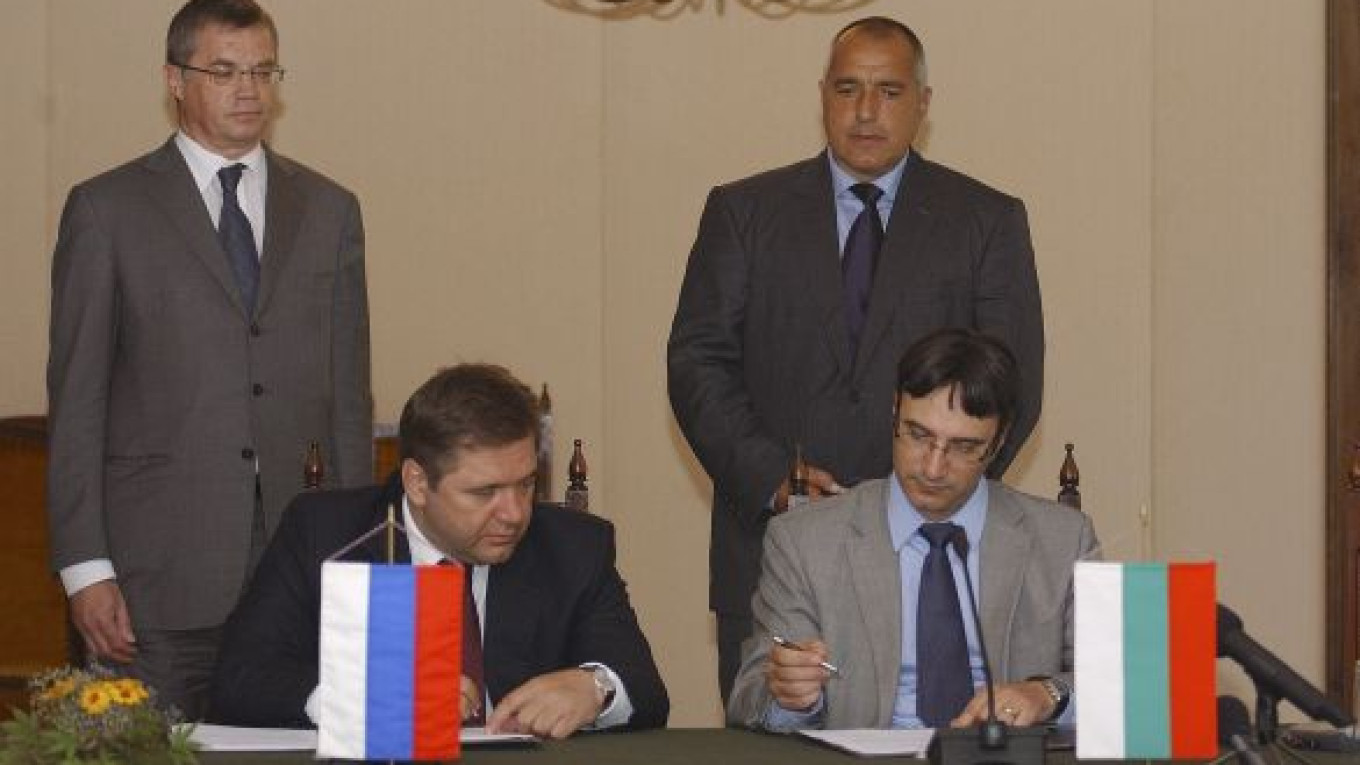VARNA, Bulgaria — Russia and Bulgaria signed a road map agreement Saturday to speed up the building of the Gazprom-led South Stream gas pipeline on Bulgarian territory.
Sofia agreed to push ahead with the pipeline, which aims to ship up to 63 billion cubic meters of gas per year under the Black Sea to Central and Southern Europe, after Moscow committed to lower gas prices for Bulgaria.
The signing comes a year after Sofia's center-right government put Russian-backed energy projects on hold, saying it had to check whether they meet the national interest and the European Union agenda.
South Stream was designed to bypass Ukraine in transporting Russian gas to Europe and is expected to become operational in 2015. It is a rival to the EU-backed Nabucco pipeline, designed to bring gas from Central Asia and the Middle East.
The two sides also agreed Saturday to sign a direct gas supply contract for Bulgaria by the end of the first half of 2011 that will imply no intermediaries in the deal. A draft should be prepared by Aug. 15.
"We are now speeding up the work on South Stream," Russian Energy Minister Sergei Shmatko told reporters. "We have no outstanding issues, and we also put an end to the participation of intermediaries."
Bulgaria secures about 70 percent of its energy needs through imports. It gets almost all of its gas from Gazprom, its only nuclear power plant, Kozloduy, is Soviet-made and its only operational oil refinery is owned by LUKoil.
Under the South Stream agreement, Bulgaria and Russia plan to set up a 50-50 joint venture by February for the Bulgarian part of the pipeline, estimated to cost $835 million.
Gazprom's export chief, Alexander Medvedev, said a gas price reduction would take place this month. He would not elaborate.
Bulgarian Economy and Energy Minister Traicho Traikov said, however, that prices for industry and households would be "a few percent lower."
Bulgaria also signaled that it was willing to unfreeze the 2,000-megawatt Belene nuclear plant project and renegotiate the terms for its construction with Atomstroiexport.
Prime Minister Boyko Borissov said Bulgaria and Russia are working to find a strategic investor for Belene — estimated to cost 7 billion euros ($9 billion) — by mid-September.
The warming toward Russian energy projects has irked Washington, which says Sofia should work more on diversifying its energy dependence.
Last week, the U.S. ambassador to Sofia asked what Bulgaria was doing to diversify its supplies if it was to go ahead with the South Stream and Belene and lobbied for Chevron's bid to start exploring for shale gas in the country.
A Message from The Moscow Times:
Dear readers,
We are facing unprecedented challenges. Russia's Prosecutor General's Office has designated The Moscow Times as an "undesirable" organization, criminalizing our work and putting our staff at risk of prosecution. This follows our earlier unjust labeling as a "foreign agent."
These actions are direct attempts to silence independent journalism in Russia. The authorities claim our work "discredits the decisions of the Russian leadership." We see things differently: we strive to provide accurate, unbiased reporting on Russia.
We, the journalists of The Moscow Times, refuse to be silenced. But to continue our work, we need your help.
Your support, no matter how small, makes a world of difference. If you can, please support us monthly starting from just $2. It's quick to set up, and every contribution makes a significant impact.
By supporting The Moscow Times, you're defending open, independent journalism in the face of repression. Thank you for standing with us.
Remind me later.


